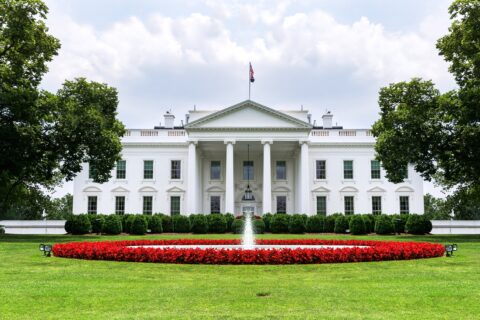Reform

Will Florida’s New Republican Senator Focus on Immigration Reform?
Immigration advocates around the country let out a heartfelt sigh when Florida Republican Senator, Mel Martinez, announced his resignation earlier this month. Senator Martinez, whose term was set to expire January 3, 2011, is Cuban-born and a long-time immigration supporter. Florida Republican Governor Charlie Crist, who plans to run for the Senate seat himself, appointed George LeMieux, his closest political advisor to fill the seat—a choice met with heavy criticism from Democrats. While no one is quite sure how George LeMieux will fare on issues critical to Florida voters (since LeMieux has never held public office before), one thing is sure: GOPers would do well to keep immigration reform at the top of the priority list considering that Latinos comprised roughly one-in-seven of the swing-state’s voters in the 2008 presidential election. Read More

Local Company Gives ‘Sin City’ a Bad Name
Las Vegas prides itself on its strong union-staffed hotels and casinos. However, according to a class-action lawsuit recently filed, Bravo Pro Inc. was allegedly paying workers $3.50 to $4.00 per hour for 13-hour shifts with no overtime pay. Their employees were providing janitorial and maintenance services to Bravo’s clients around the city. According to the Las Vegas Sun: The workers’ attorney, Matthew Callister, says the company held its mostly-Mexican workforce in a form of “indentured servitude,” squeezing more labor out of frustrated workers by promising to make them whole one day. Many tired of waiting and quit. Others, undocumented and desperate for work, remain silent. Read More

Non-English Speaking Mother Separated from Child: The Tragedy of Mixed-Status Families
A recent article on TIME.com follows the story of a young undocumented mother from Oaxaca, Mexico, whose baby, born in the United States, was taken away by the state of Mississippi because she “doesn’t speak English.” According to the article, the mother was allegedly deemed unfit “in part because her lack of English placed her baby in danger.” Putting aside your stance on immigration and ignoring obvious human rights violations, this story smacks of irony—the removal of a child by a country that seemingly prizes “American values”—and is indicative of our woefully broken immigration system. Read More

And the Beat Goes On: Immigration Reform and the Road Ahead
As Washington and the rest of the country continue to reflect on the monumental legacy of the late Senator from Massachusetts, many are contemplating the enormous leadership gap left in his passing. A tireless champion of health care, civil rights, foreign policy, education, immigration and many other worthy causes, Senator Kennedy’s first major legislative victory—eliminating the national quotas for immigration— “helped change the face of the country and shaped his own political career.” But the question remains, how do we continue Sen. Kennedy’s drumbeat on immigration reform? Read More

Leader, Visionary and Friend: Today We Remember Senator Edward M. Kennedy
The Capitol is quiet, its halls silent, its chambers shuttered. The Senate is in recess, and in the midst of that quiet, one of its greatest members has passed away. It’s fitting that Sen. Edward M. Kennedy died while his beloved Senate was in recess. There were no committee hearings to chair, no deals to negotiate, no fiery speeches to give. His voice is silenced, but his words and actions will live on. For immigration advocates, Senator Kennedy was a friend, a visionary, and a supreme strategist. He was the architect of the Refuge Act of 1980, a piece of legislation that, since its passage, has fostered a new life for hundreds of thousands of refugees and asylees, sheltering them from persecution in their home countries. He will forever be remembered as the heart of comprehensive immigration reform, fighting back the worst of the changes anti-immigration forces sought to make in 1996, authoring reform bills that would restore due process to the immigration system, and most importantly, forging a plan for comprehensive immigration reform that continues to be the model for today’s legislation. Read More

Faith and Leadership Required: A Closer Look at Last Week’s White House Meeting
Last week’s White House meeting on immigration marked another chapter in the years-long effort to enact comprehensive immigration reform. Janet Napolitano’s invitation to more than one hundred representatives from business, labor, faith, law enforcement, and immigration groups was a genuine attempt to listen to concerns and solicit ideas. The format—large group meeting addressed by the Secretary, small group discussion led by various DHS and White House officials, summary and surprise remarks from the President—gave people a chance to say just a little, but the cumulative effect was more important than we may realize. Read More

The President and Secretary Napolitano Reaffirm Commitment to Immigration Reform
Yesterday, DHS Secretary Janet Napolitano met with immigrant advocates, faith leaders, labor, business and law enforcement officials at the White House to discuss moving forward with a comprehensive immigration reform bill this year. President Obama appeared at the end of the meeting to reaffirm his commitment to reform and pledge that “we can get this done.” While the President commended Sens. Charles Schumer’s (D-NY) and Harry Reid’s (D-NV) efforts to move a bill forward, he also urged participants to work together in a bipartisan effort to advance a sensible and human immigration system that is consistent with our American values. Read More

South Carolina Senator in Search of Solutions
According to a recent Wall Street Journal article, Sen. Chuck Schumer (D-NY), Chairman of the Immigration, Refugee and Border Security Subcommittee, has tapped Senator Lindsey Graham (R-SC) to help garner GOP support for a comprehensive immigration bill this year. While not always voting in favor of common sense solutions to our broken immigration system, Senator Graham has shown himself to be at least one Republican leader who understands the importance of our nation’s changing demographic—especially in his home state of South Carolina—on future electoral races. Read More

Health Care Reform and Immigration: The Sideshow Antics of the Anti-Reform Crowd
Today, the Center for Immigration Studies (CIS) released a new fact sheet about immigrants and the health care system. At a public event, CIS made it clear that while immigrants may not be to blame for all the problems with the U.S. health care system, they certainly are part of the problem, and the only solution is to step up immigration enforcement and reduce future immigration. Hmmm, isn’t that their solution to everything? While stating that free health care for “illegals” is a problem (even though the bills in Congress explicitly deny coverage to undocumented immigrants), CIS focused on health care benefits for legal immigrants, implying that legal immigrants should be denied affordable health care and that comprehensive immigration reform would destroy the health care system. This is simply the latest attempt to silence any constructive discussion about important issues and scare the American public by using immigrants as a handy scapegoat. Read More
Make a contribution
Make a direct impact on the lives of immigrants.

